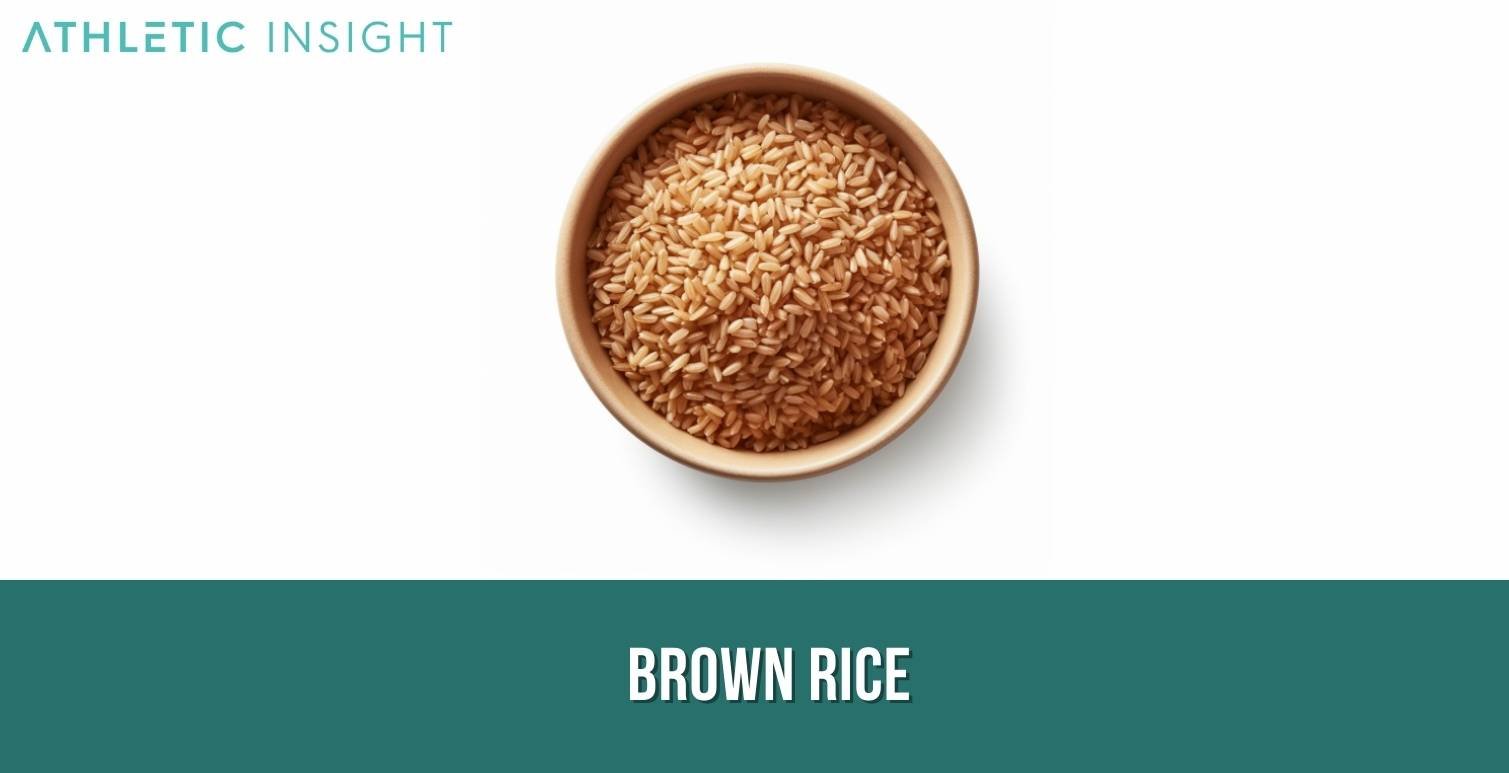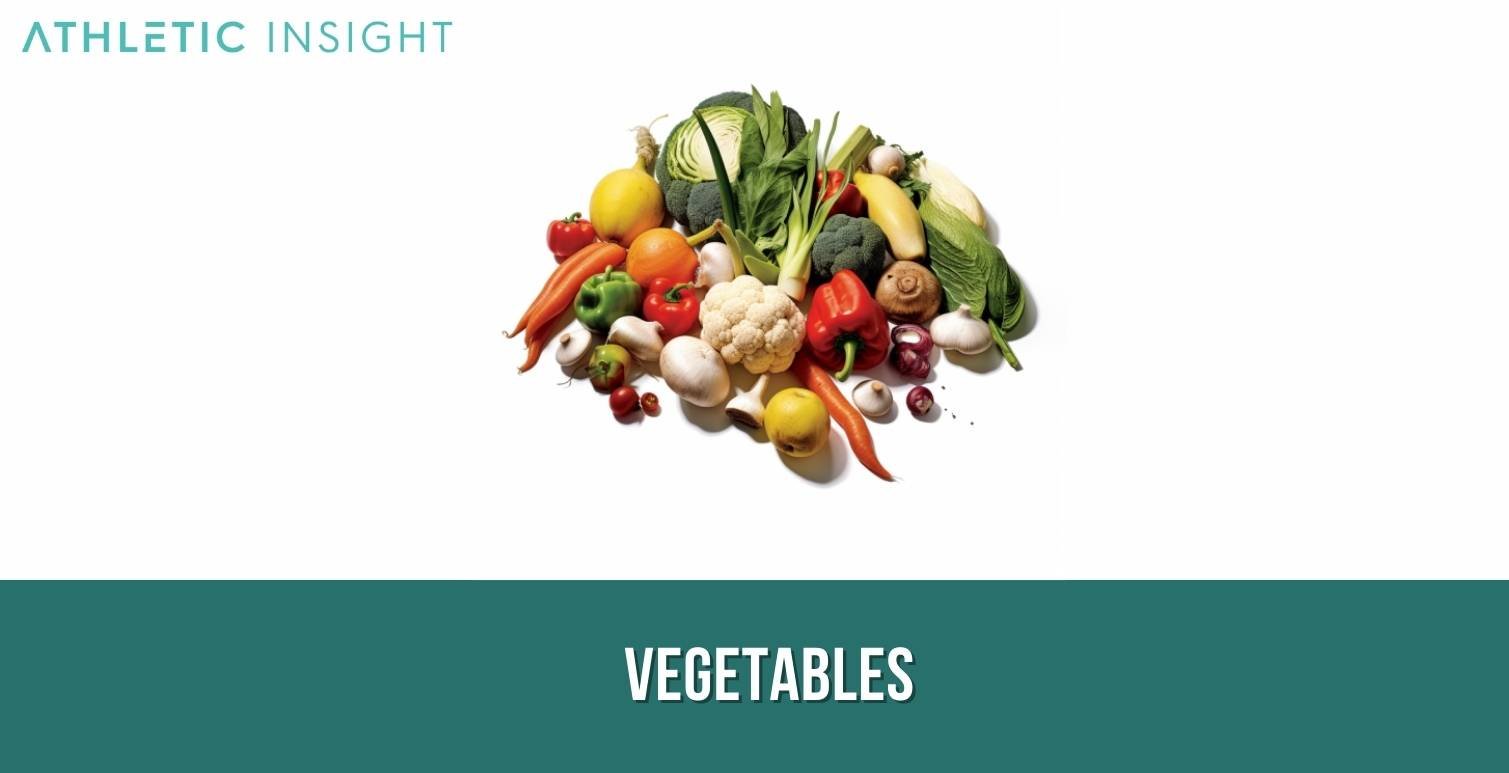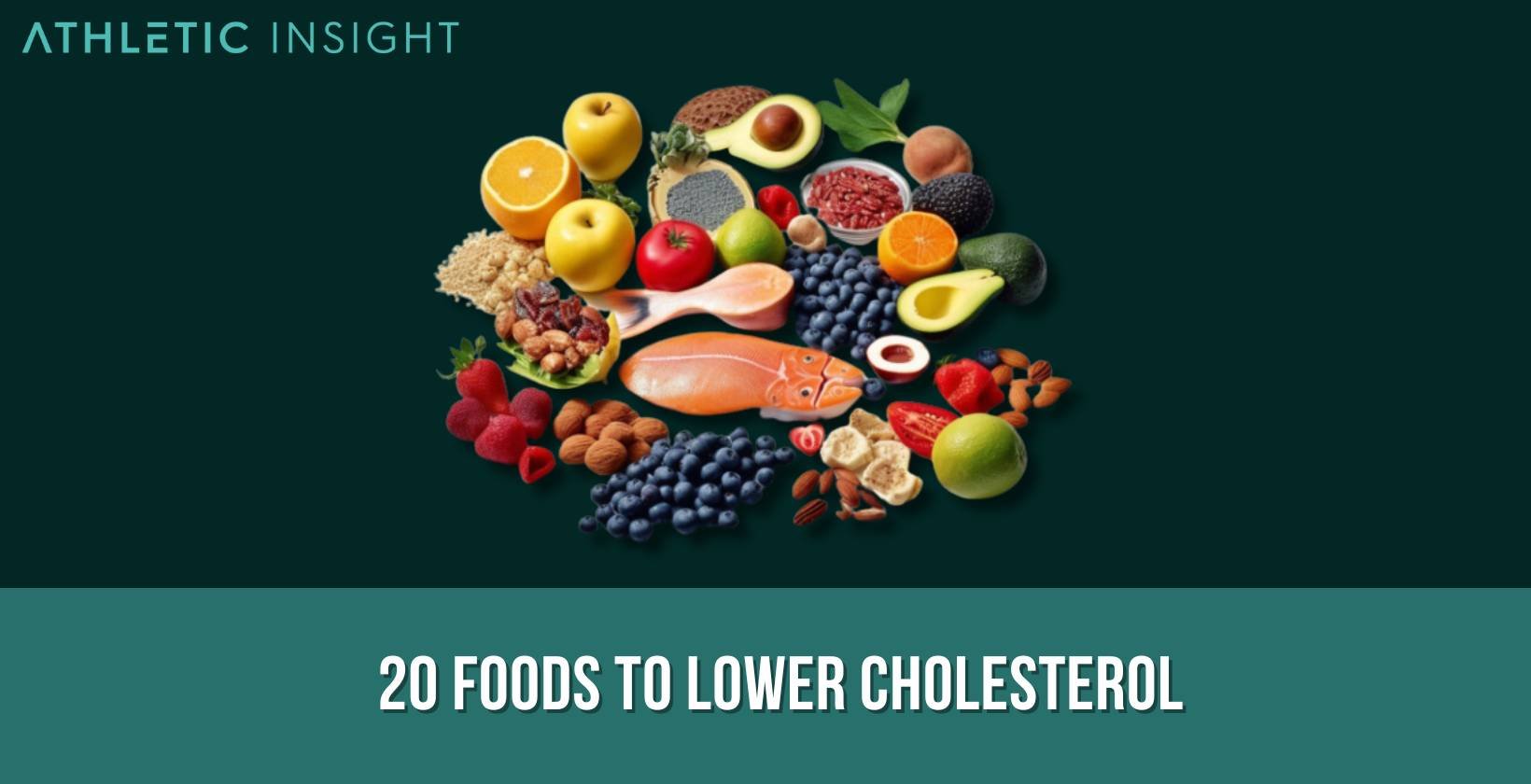Looking into the realm of health and nutrition can often become a confusing labyrinth of information, with advice on what to eat and what not to eat seeming to change on a daily basis. However, the importance of maintaining low cholesterol levels remains a consistent piece of advice given by healthcare professionals across the globe. This article elucidates 20 specific foods proven to contribute to lower cholesterol levels, leading to a healthier lifestyle.
The foods we consume play a pivotal role in dictating the cholesterol levels in our bodies. These levels are not to be underestimated as they contribute greatly to heart health, influencing the risk of heart disease and stroke. A nutrient-rich diet containing certain foods can assist in decreasing cholesterol levels, leading to a healthier cardiovascular system.
Food has an instrumental role in lowering cholesterol levels. Certain foods can reduce LDL cholesterol, known as the ‘bad’ cholesterol, raise HDL cholesterol, termed as the ‘good’ cholesterol, or contribute to both. These foods primarily contain high amounts of fiber, unsaturated fats, or specific compounds known for their cholesterol-lowering properties.
- Oats and oat bran
- Green tea
- Barley
- Dark chocolate (at least 70% cocoa)
- Whole wheat and whole grain products
- Onions
- Brown rice
- Garlic
- Vegetables (e.g., leafy greens, broccoli, Brussels sprouts, cauliflower)
- Quinoa
- Beans and legumes
- Berries
- Soy products
- Fruits
- Seeds
- Fatty fish
- Avocados
- Plant sterols and stanols
- Olive oil
- Canola oil
1. Oats and oat bran
Oats, a whole-grain food, and oat bran, the outer layer of the oat grain, are renowned for their high soluble fiber content. Soluble fiber reduces the absorption of cholesterol into the bloodstream, thereby effectively lowering overall cholesterol levels.

Beyond just lowering cholesterol, oats and oat bran offer an array of other health benefits. They can assist in blood sugar control, which is beneficial for those with diabetes, and can contribute to a feeling of fullness, assisting in weight management. As an example, starting the day with a warm bowl of oatmeal, topped with fruits rich in fiber, can provide a healthful, cholesterol-lowering breakfast.
2. Green tea
Green tea, a beverage steeped in history and culture, contains a group of plant chemicals known as catechins, which exhibit cholesterol-lowering properties. These bioactive compounds inhibit the absorption of cholesterol in the gut, effectively lowering LDL cholesterol levels.

Green tea’s health benefits extend beyond cholesterol management. It also contains potent antioxidants that can protect the body against cellular damage. Drinking a warm cup of green tea, or even using it as a base for a refreshing iced tea, can provide these health benefits.
3. Barley
Barley, a versatile and ancient grain, contains both soluble and insoluble fiber. Soluble fiber reduces the absorption of cholesterol and glucose into the bloodstream, while insoluble fiber promotes digestive health.
Barley also offers other benefits such as improving blood pressure and reducing inflammation. This grain can be an excellent addition to soups, stews, or salads, lending a delightful chewy texture and nutty flavor.
4. Dark chocolate (at least 70% cocoa)
Dark chocolate, particularly when it contains at least 70% cocoa, is a delicious source of flavonoids, antioxidants that can lower LDL cholesterol and increase HDL cholesterol. In addition to this, dark chocolate’s high cocoa content provides potent antioxidants that can reduce the risk of heart disease. A small square of high-quality dark chocolate can serve as a satisfying and heart-healthy dessert.

5. Whole wheat and whole grain products
Whole wheat and whole grain products, such as bread and pasta, are excellent sources of dietary fiber. These foods can help to lower LDL cholesterol and increase HDL cholesterol, improving overall heart health.

These products also contain a variety of nutrients and minerals that contribute to overall health. They can be incorporated into meals in countless ways, such as a sandwich on whole grain bread or a bowl of whole wheat pasta.
6. Onions
Onions, a ubiquitous cooking ingredient, contain a flavonoid called quercetin. This compound possesses antioxidant properties that may lower LDL cholesterol and increase HDL cholesterol.
Aside from their cholesterol-lowering properties, onions also possess anti-inflammatory and antimicrobial effects. Incorporating onions into a variety of dishes, such as stir-fries, salads, or soups, can contribute to heart health and overall wellbeing.

7. Brown rice
Brown rice, a whole grain rich in dietary fiber, can assist in lowering cholesterol levels. Its fiber content reduces cholesterol absorption, therefore aiding in the regulation of cholesterol levels.
In addition to its cholesterol-lowering effects, brown rice is a good source of B vitamins and various minerals. Swapping white rice for brown rice in dishes can help to lower cholesterol levels while also providing numerous additional health benefits.

8. Garlic
Garlic, a culinary cornerstone, contains a compound called allicin, which has been studied for its potential to lower cholesterol. Its beneficial effects on cholesterol, coupled with its ability to lower blood pressure, contribute to garlic’s heart-healthy reputation.
Beyond its cardiovascular benefits, garlic has antibacterial and antiviral properties, bolstering the immune system. Incorporating garlic into cooking, such as roasting it for a rich, sweet flavor or using it fresh for a strong, pungent taste, can contribute to a heart-healthy diet.
9. Vegetables (e.g., leafy greens, broccoli, Brussels sprouts, cauliflower)
Vegetables, particularly leafy greens, broccoli, Brussels sprouts, and cauliflower, contain ample amounts of dietary fiber. This fiber can help to lower cholesterol levels by reducing cholesterol absorption in the intestines.

In addition to fiber, these vegetables are abundant in various vitamins, minerals, and antioxidants, contributing to overall health and wellbeing. Incorporating a wide variety of these vegetables into meals, whether raw in salads or cooked in a myriad of dishes, can assist in lowering cholesterol and promoting overall health.
10. Quinoa
Quinoa, a versatile grain-like seed, is high in dietary fiber and plant sterols. Both of these compounds can assist in lowering cholesterol levels.

Quinoa also contains a complete protein, meaning it contains all the essential amino acids. This makes it a particularly valuable food for those following plant-based diets. Using quinoa as a base for salads, as a side dish, or even as a breakfast porridge can contribute to a cholesterol-lowering diet.
11. Beans and legumes
Beans and legumes, including lentils, chickpeas, and black beans, are high in soluble fiber, which can reduce LDL cholesterol levels. This fiber can also aid in slowing the rate of digestion, promoting a sense of fullness and aiding in weight management.
These food groups are also high in plant protein and can serve as a great alternative to animal protein. A hearty bowl of chili made with kidney beans or a salad topped with chickpeas can be a tasty and heart-healthy meal choice.
12. Berries
Berries, such as blueberries, strawberries, and raspberries, contain antioxidants known as anthocyanins. These compounds are known for their LDL cholesterol-lowering properties, promoting heart health.

Besides, berries are packed with other nutrients, including vitamin C and manganese. They can be enjoyed fresh as a snack, tossed into a salad, or blended into a smoothie for a nutrient-rich, cholesterol-lowering food option.
13. Soy products
Soy products, which include tofu, tempeh, and soy milk, contain isoflavones, compounds known to lower LDL cholesterol. Replacing some animal proteins with soy protein can lead to a significant reduction in cholesterol levels.
Apart from their cholesterol-lowering properties, soy products also contain high-quality plant protein and various vitamins and minerals. Tofu stir-fry or a glass of soy milk can be a beneficial addition to a cholesterol-lowering diet.
14. Fruits
Fruits, like oranges, apples, and pears, are rich in soluble fiber, which can help lower cholesterol levels. They also contain various other nutrients, such as vitamin C and potassium, which can contribute to overall health.
Apart from their cholesterol-lowering benefits, fruits can also help manage blood sugar levels and aid in digestion. Incorporating a variety of fruits into one’s diet, whether as a snack or a part of a meal, can contribute to lower cholesterol levels.
15. Seeds
Seeds, such as chia seeds and flaxseeds, are rich in omega-3 fatty acids and dietary fiber. The fiber contained within these seeds can help to reduce LDL cholesterol, thereby benefiting cardiovascular health.
In addition, seeds are a good source of plant-based protein and other beneficial nutrients like magnesium. They can be easily incorporated into the diet by adding them to smoothies, yogurt, or salads, or by using them as a topping on oatmeal or whole-grain toast.
16. Fatty fish
Fatty fish like salmon, mackerel, and sardines are rich in omega-3 fatty acids. These healthy fats have been shown to lower LDL cholesterol and increase HDL cholesterol, offering significant heart health benefits.

Apart from their cholesterol-lowering properties, omega-3 fatty acids can also reduce inflammation and decrease the risk of stroke. Consuming fatty fish a few times a week can contribute significantly to a heart-healthy diet.
17. Avocados
Avocados are an excellent source of monounsaturated fats, which have been proven to lower LDL cholesterol and increase HDL cholesterol. They also contain a substantial amount of dietary fiber, which further assists in regulating cholesterol levels.

In addition to these heart health benefits, avocados are rich in various vitamins and minerals, including potassium and vitamin K. They can be added to salads, used in sandwiches, or even enjoyed on their own, making them a versatile addition to a cholesterol-lowering diet.
18. Plant sterols and stanols
Plant sterols and stanols, found in foods like vegetable oils, nuts, and legumes, are substances that can lower cholesterol levels by blocking cholesterol absorption in the gut. Apart from their cholesterol-lowering abilities, they also have anti-inflammatory effects. Consuming a diet high in plant sterols and stanols, through eating a variety of plant-based foods, can be beneficial for heart health.
19. Olive oil
Olive oil, a staple of the Mediterranean diet, is rich in monounsaturated fats which can help lower LDL cholesterol without affecting the levels of beneficial HDL cholesterol. It is also rich in polyphenols, antioxidant compounds that may provide cardiovascular benefits.

In addition, olive oil is a great source of vitamin E, an antioxidant that protects cells from damage. It can be used in salad dressings, for sautéing vegetables, or simply drizzled over whole-grain bread for a heart-healthy addition to meals.
20. Canola oil
Canola oil is another heart-healthy oil rich in monounsaturated fats, which are known for their cholesterol-lowering effects. It also contains omega-3 and omega-6 fatty acids, both essential for heart and brain health.
Canola oil has a mild flavor and high smoke point, making it a versatile choice for cooking and baking. Substituting canola oil for solid fats or other oils higher in saturated fat can be beneficial for cholesterol levels.
What to know more about Foods to Lower Cholesterol?
Understanding the importance of incorporating cholesterol-lowering foods into the diet is essential for maintaining heart health. These foods work primarily by providing high amounts of soluble fiber, which reduces the absorption of cholesterol into the bloodstream, and by supplying healthy fats that can lower harmful LDL cholesterol while increasing beneficial HDL cholesterol.
A diet rich in fruits, vegetables, whole grains, lean proteins, and healthy fats not only contributes to lower cholesterol levels but also provides a wide range of nutrients necessary for overall health. This dietary approach, coupled with regular physical activity and maintaining a healthy weight, forms the foundation for a heart-healthy lifestyle.
What is the breakfast diet plan for lowering Cholesterol?
Starting the day with a cholesterol-lowering breakfast can set the tone for a heart-healthy day. Consider starting your diet plan with a bowl of oatmeal topped with fresh berries and a sprinkle of flaxseeds. Oats are high in soluble fiber, which can lower LDL cholesterol, while berries offer heart-healthy antioxidants and flaxseeds provide omega-3 fatty acids.
For protein, consider a side of scrambled tofu instead of traditional eggs. Soy products like tofu can lower cholesterol levels when used as a replacement for animal proteins. Alternatively, having a glass of orange juice fortified with plant sterols can help reduce cholesterol levels.
What is the lunch diet plan for lowering Cholesterol?
For a cholesterol-lowering lunch, consider a hearty salad made with leafy greens, avocado, and a handful of almonds, dressed with olive oil and lemon juice. Leafy greens are low in calories and high in fiber, while avocados and almonds provide monounsaturated fats, and olive oil has cholesterol-lowering effects.
For a warm option, consider a lentil soup accompanied by a slice of whole-grain bread. Lentils are high in fiber and a good source of plant protein, while whole grains can help lower cholesterol levels.
What is the dinner diet plan for lowering Cholesterol?
A cholesterol-lowering dinner could be grilled salmon, served with a side of quinoa and steamed broccoli. Salmon is high in omega-3 fatty acids, quinoa is a good source of plant protein and fiber, and broccoli is a nutrient-rich vegetable that can contribute to lower cholesterol levels.
For a vegetarian option, consider a stir-fry made with tofu, mixed vegetables, and brown rice. This meal provides high-quality plant protein from tofu, a variety of nutrients from vegetables, and fiber from brown rice.
What is the diet plan for lowering cholesterol for beginners?
Starting a cholesterol-lowering diet might seem daunting at first, but with a few simple changes, one can begin this journey.
- Breakfast: Switch from refined grain products to whole grain alternatives, such as swapping white bread for whole wheat or regular cereal for oatmeal. Include a piece of fruit like an apple or banana for added fiber.
- Lunch: Choose salads loaded with a variety of colorful vegetables, a good source of plant sterols. Add some beans or tofu for protein and heart-healthy fiber.
- Dinner: Replace red meat with fatty fish like salmon twice a week. Serve with a side of brown rice and steamed vegetables for a balanced meal. In-between meals, choose nuts and seeds as snacks instead of chips or sweets.
What are some good sources of nutrients to lower cholesterol?
Certain nutrients can play a key role in lowering cholesterol. Soluble fiber, found in foods like oats, apples, and lentils, can help reduce the absorption of cholesterol in the bloodstream.
Monounsaturated fats found in foods like avocados, almonds, and olive oil can lower LDL cholesterol levels while maintaining HDL cholesterol.
Omega-3 fatty acids found in fatty fish, walnuts, and flaxseeds can reduce overall cholesterol levels. Lastly, plant sterols found in all fruits and vegetables can block cholesterol from being absorbed in the gut.
What are the foods to avoid in lowering cholesterol?
While incorporating healthy foods into the diet, it’s also essential to avoid certain foods that can raise cholesterol levels. Processed meats, full-fat dairy products, fried foods, and desserts high in sugar and fat can contribute to increased cholesterol levels.
In addition, nutrients such as trans fats, which are found in some margarines and commercially baked goods, can raise LDL cholesterol and should be avoided. Limiting dietary cholesterol intake by reducing consumption of organ meats and shellfish can also be beneficial.
Should you limit your intake of high-calorie foods while on a diet?
Yes, you should limit your intake of high-calorie foods while on a diet. High-calorie foods often contain high levels of fat and sugar, which can contribute to weight gain and increased cholesterol levels. While the body needs some dietary fat for energy and nutrient absorption, it’s crucial to opt for foods containing healthy fats, like avocados and almonds, and limit intake of saturated and trans fats.
Portion control is another vital aspect of maintaining a healthy diet and managing cholesterol levels. Even healthy foods can contribute to weight gain and increased cholesterol if consumed in large quantities.
Are there any natural supplements or herbal remedies that may help lower cholesterol?
Yes, certain natural supplements and herbal remedies may support cholesterol-lowering efforts. Omega-3 fatty acid supplements, derived from fish oil or flaxseed oil, have been shown to lower overall cholesterol levels.
Plant sterol and stanol supplements may also be effective at reducing cholesterol by blocking its absorption in the gut. Other potential supplements include psyllium, a type of fiber that can lower LDL cholesterol, and red yeast rice, which contains naturally occurring substances akin to the cholesterol-lowering drug lovastatin.
Will drinking vitamins help lower cholesterol?
No, drinking vitamins will not help lower your cholesterol. While certain vitamins and nutrients can support heart health, simply drinking vitamins is unlikely to have a significant impact on cholesterol levels.
A balanced diet rich in fruits, vegetables, whole grains, lean proteins, and healthy fats will provide a broad spectrum of essential vitamins and nutrients, contributing to overall health and aiding in cholesterol control. That said, some specific supplements and vitamins, such as omega-3 fatty acids and plant sterols, may help lower cholesterol as part of a balanced diet.



